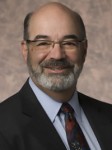Michael Falbo, President of the University of Wisconsin System Board of Regents, recently spoke with WisconsinEye senior producer Steve Walters. A two minute video excerpt is below.
The pair discussed Governor Scott Walker’s budget proposal, including the governor’s recent remark that the university’s budget situation could be improved if faculty taught one additional class each semester.
When asked to react to the governor’s remark, Falbo said, “certainly it’s true if they (faculty) taught another class there would be some efficiencies from that.” Falbo went on to say any changes to faculty workload would not happen quickly and would be the result of a collaborative process with all involved.
The full 18 minute video interview is here:



